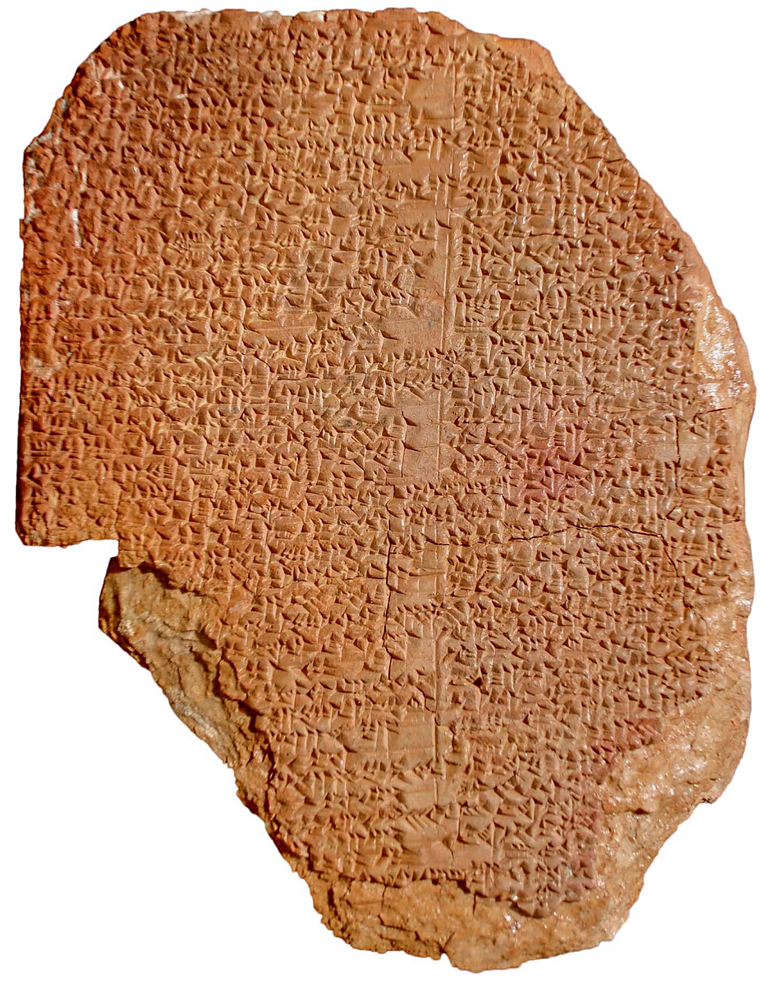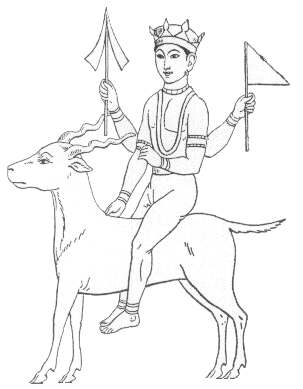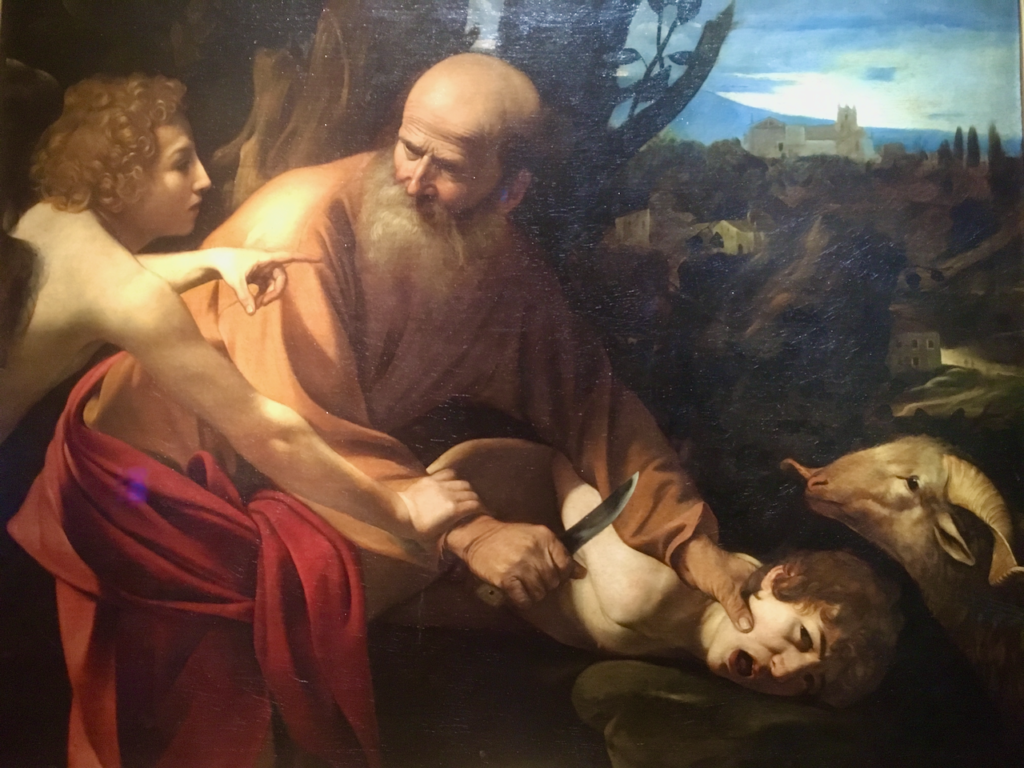People passed down Ancient literature (c.35,000 BC—1250 BC) orally for millenia before they invented various technologies for writing. They then recorded their stories and poems in such media as stone, hardened clay, or papyrus.
The earliest literature often centered around gods, either in the form of stories or praise. Heroes of ancient literature tended to be demi-gods and kings, such as Gilgamesh, the demi-god king of the Sumerians.
The Earliest Oral & the Earliest Written Literature
The earliest literature passed down orally may be the Australian Aboriginal history Budj Bim. It relates the tale of a volcano god who spat lava, the flow of which made the rich land that has supported the tribe ever since. Astonishingly, Aboriginals have passed down this tale for 37,000 years. Geologists and archaeologists have determined the tribe’s Lake Surprise, in Australia, rests in the crater of the volcano described in the Budj Bim—a volcano that last erupted 37,000 years ago.
The ancient Sumerian text Gilgamesh was rediscovered in the middle of the nineteenth century. This epic claims the title for the earliest written literature yet found. Around 2,100 BC, Sumerians imprinted clay tablets with cuneiform (meaning “wedge shaped”) writing. The story recorded the founding of the city of Ur by King Gilgamesh. The king reigned much earlier, c.2,800 BC. Ancient scribes used the ends of reeds to stamp wedge-shaped lines into the clay to form different characters. They then baked the clay tablets to harden and preserve them. The legendary king’s narrative influenced ancient people throughout the Middle East. Archaeologists have discovered the story in cuneiform tablets of clay and stone in the languages of Sumer, Babylon, and Akkad.
Sanskrit is the earliest form of the Indo-European languages, including English. The earliest works of the Bible, however, are written in Hebrew. Hebrew thus forms the core of the most-referenced book in later English literature.
Ancient literature generally took the form of poetry, either in verse or prose poetry with parallel construction.
What are Representative Works of Ancient Literature?
“Ancient literature” refers to any work composed before 1250 BC, predating the fifth century AD origin of the English language. The three representative works listed below, while not originally composed in English, will give the curious reader of English a glimpse at the nature of humanity’s earliest stories, the poetic prosody of humanity’s earliest writing, and a familiarity with essential stories from the single most influential book for later writers in English—The Bible.
The Epic of Gilgamesh (Sumerian cuneiform)
“Gilgamesh was a great, wise, and learnèd king, and was well acquainted with history.” (Translation from the Sumerian cuneiform by E.A. Budge)

Composed around 2,800 BC, The Epic of Gilgamesh is the earliest work of written literature ever discovered. It relates the tale of the founding King of Ur, the warrior-king Gilgamesh, and his adventures with his partner Enkidu. Particularly interesting is Gilgamesh’s trip to find an immortal named Utnapishtim, where the king learns about the Great Flood that once destroyed the world.
Rig Veda (Sanskrit)
“We bow down before the sages born in the ancient times, the ancient path-makers.” (Translation from the Sanskrit by Wendy Doniger)
Sanskrit is the original Indo-European language, the earliest ancestor of English. The Rig Veda is the earliest Sanskrit work yet found, copies of which date back to 1500 BC. This foundational text of the Hindu religion still fascinates with its chants, prayers, and profundities.

The Hebrew Bible (esp. Genesis, Exodus, 1-2 Samuel, 1 Kings, Ecclesiastes, and Job; Hebrew)
The Hebrew Bible, written in a language entirely distinct from Sanskrit and, subsequently, English, ironically gives us the stories, poems, and ideas that will most influence the English-speaking world, its art, and its literature.
Christians now call the first part of the Bible The Old Testament. It includes misterdoctorcoachguy’s recommended reading: Genesis, Exodus, 1-2 Samuel, 1 Kings, Ecclesiastes, and Job.
A writer who probably lived in the court of King Solomon at Jerusalem recorded the stories from Genesis and Exodus. Because this author refers to God as “Yaweh” in the text, and the German scholars who identified her in the eighteenth century translated “Yaweh” as “Jehovah,” the otherwise unnamed author we now call “J.”
Genesis
Genesis relates the stories of Adam and Eve in the Garden, Noah’s Great Flood, the Tower of Babel, Abraham’s covenant with the one true God, and the descendants of Abraham—Isaac, Jacob, and Joseph—struggling to keep that covenant and to defend their people in a hostile world.
Exodus
Exodus tells the story of Moses, deliverer of the Hebrews from slavery in Egypt into the Promised Land of Israel. Moses gives the laws of God, especially the Ten Commandments, to His chosen people.
1-2 Samuel
The Books of Samuel tell the story of David, God’s beloved, the shepherd boy who slew the giant Goliath. David later becomes the second king of Israel after Saul’s disastrous rule.
1 Kings
1 Kings focuses on David’s son, King Solomon, full of wisdom. His intriguing affairs include a dalliance with the Queen of Sheba, a brilliant and strong-willed Ethiopian queen.
Ecclesiastes
Ecclesiastes finds King Solomon reflecting, in his old age, on the vanity of the material world. Solomon comments on the meaning of life itself in achingly moving poetic lines.
Job
Although Job (pronounced with a long ‘o’) is actually one of the earliest-written books of the Bible, ancient Hebrew scholars only added it to the official biblical canon later in its history. It relates the story of an ancient man of means, Job. He is innocent and upright, yet suffers horribly at the hands of Satan—who takes away all his worldly possessions, kills his children, and afflicts him with a painful disease. Job’s subsequent, anguished questioning of why God allows the innocent to suffer is one of the most elegant and moving works in Western literature. We find the influence of Job everywhere: from phrases commonly recited at funerals to the Coen Brothers’ 2009 film A Serious Man.

Although this Web site focuses on literature in English, readers who especially enjoy the ancient period may also want to read the hymns attributed to the Sumerian priestess Enduanna (c.2300 BC), daughter of Sargon of Akkad and humankind’s earliest named author; The Egyptian Book of the Dead (c.1550 BC), full of magic spells and illustrations used for over a thousand years in ancient Egyptian funerals; or James Pritchard’s classic translations of ancient middle eastern literature, including the Code of Hammurabi, in his Ancient Near Eastern Texts Relating to the Old Testament.
Representative Works of Ancient Literature
Gilgamesh, The Rig Veda, The Hebrew Bible

